
"Twist and Shout" is a 1961 song written by Phil Medley and Bert Berns. It was originally recorded by the Top Notes, but it did not become a hit in the record charts until it was reworked by the Isley Brothers in 1962. The song has been covered by several artists, including the Beatles, Salt-N-Pepa, and Chaka Demus & Pliers, who experienced chart success with their versions.
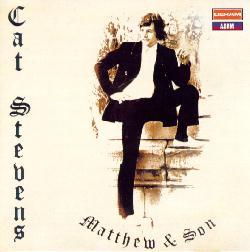
Matthew and Son is the debut studio album by British singer-songwriter Cat Stevens, released in March 1967.

The Tremeloes are an English beat group founded in 1958 in Dagenham, England. They initially found success in the British Invasion era with lead singer Brian Poole, scoring a UK chart-topper in 1963 with "Do You Love Me".
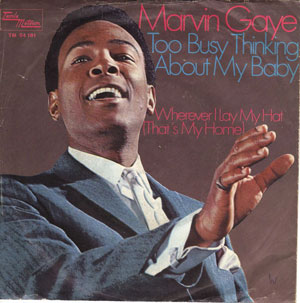
"Too Busy Thinking About My Baby" is a Motown song written by Norman Whitfield, Barrett Strong, and Janie Bradford. The song was first recorded by The Temptations as a track on their 1966 album Gettin' Ready. Eddie Kendricks sings lead on the recording, which was produced by Whitfield. Jimmy Ruffin also recorded a version with The Temptations providing background vocals in 1966. It remained unreleased until 1997.

"The Tracks of My Tears" is a song written by Smokey Robinson, Pete Moore, and Marv Tarplin. It is a multiple award-winning 1965 hit R&B song originally recorded by their group, The Miracles, on Motown's Tamla label. The Miracles' million-selling original version has been inducted into The Grammy Hall of Fame, has been ranked by the Recording Industry Association of America and The National Endowment for the Arts at No. 127 in its list of the "Songs of the Century" – the 365 Greatest Songs of the 20th Century, and has been selected by Rolling Stone as No. 50 on its list of "The 500 Greatest Songs of All Time", among many other awards. In 2021, Rolling Stone ranked the Miracles' original recording of "The Tracks of My Tears" as "The Greatest Motown Song of All Time".

"Bye, Bye, Baby " is a popular song written by Bob Crewe and Bob Gaudio, a member of The Four Seasons, whose version of the song made it to No. 1 in Canada and No. 12 on the US Billboard Hot 100 in 1965. On the original issue of the single, the title was "Bye Bye Baby". However, on the album, The 4 Seasons Entertain You, and on later issues of the song, the name was changed to the longer, more familiar one. The song is about saying goodbye, not because the person is unloved but rather because the relationship is adulterous.

"Until You Come Back to Me (That's What I'm Gonna Do)" is a song written by Morris Broadnax, Clarence Paul, and Stevie Wonder. The song was originally recorded by Stevie Wonder in 1967, but his version was not released as a single and did not appear on an album until 1977's anthology Looking Back. The best-known version of this song is the 1973 release by Aretha Franklin, who had a million-selling top 10 hit on Billboard charts. The song reached No. 1 on the R&B chart and No. 3 on the Hot 100 chart in 1974. It became an RIAA Gold record.

"Oh No Not My Baby" is a song written by Gerry Goffin and Carole King. The song's lyrics describe how friends and family repeatedly warn the singer about a partner's infidelities. The song is regarded as an American standard due to its long-time popularity with both music listeners and recording artists.
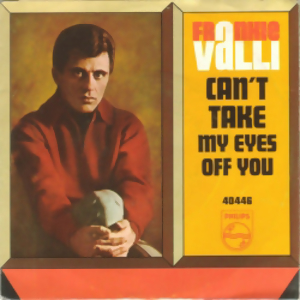
"Can't Take My Eyes Off You" is a 1967 song written by Bob Crewe and Bob Gaudio, and first recorded and released as a single by Gaudio's Four Seasons bandmate Frankie Valli. The song was among his biggest hits, earning a gold record and reaching No. 2 on the Billboard Hot 100 for a week, making it Valli's biggest solo hit until he hit No. 1 in 1975 with "My Eyes Adored You".
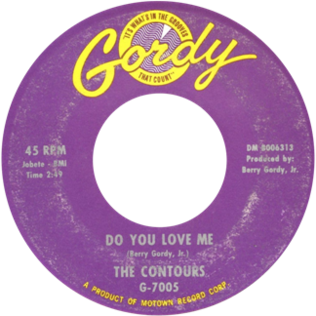
"Do You Love Me" is a rhythm and blues song recorded by the Contours in 1962. Written and produced by Motown Records owner Berry Gordy Jr., it appeared twice on the Billboard Hot 100 chart, reaching numbers three in 1962 and eleven in 1988.
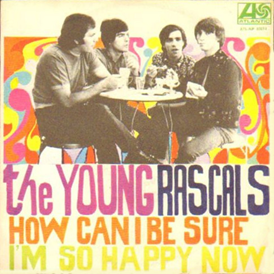
"How Can I Be Sure" is a popular song written by Felix Cavaliere and Eddie Brigati, and originally recorded by the Young Rascals for their 1967 album Groovin' with a single release in August 1967 affording the group their fourth Top 10 hit peaking at #4.

"(Your Love Keeps Lifting Me) Higher and Higher" is an R&B song written by Gary Jackson, Raynard Miner, and Carl Smith. It was recorded by Jackie Wilson for his album Higher and Higher (1967), produced by Carl Davis, and became a Top 10 pop and number one R&B hit.
"Silence Is Golden" is a song initially recorded by the American rock band the Four Seasons. Written by Bob Crewe and Bob Gaudio, Philips Records released it in 1964 as the B-side of the U.S. number 1 single "Rag Doll", which was also written by Crewe and Gaudio. The Tremeloes' 1967 cover version reached number 1 on the UK Singles Chart and number 11 on the US charts.

"Matthew and Son" is a song written and released by singer-songwriter Cat Stevens in 1966. Following his discovery by producer and manager Mike Hurst, Stevens debuted professionally in the music business with the release of his single "I Love My Dog" in September 1966. The song's surprising commercial success established his idiosyncratic songwriting style and extended his contract with Deram Records. "Matthew and Son" was musically inspired by a previous song he had written, while the lyrics were inspired by his girlfriend at the time, who worked a lot. Musically, the song is a baroque pop song with both brass and string arrangements while the lyrics tells the tale of the titular company exploiting their timid workers. "Matthew and Son" was recorded on 1 December 1966 at Decca Studios in London with Hurst producing.
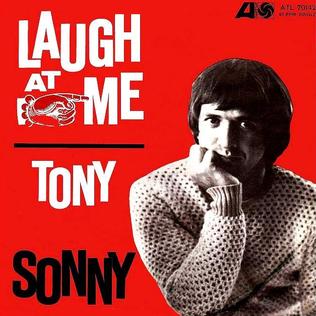
"Laugh at Me" was Sonny Bono's only hit song as a solo artist under the name Sonny. The song was written and produced by Bono.
"The Tip of My Fingers", also titled "The Tips of My Fingers", is a song written and originally recorded by American country music singer Bill Anderson. First included on his 1962 album Bill Anderson Sings Country Heart Songs, the song was a Top Ten country single for him in 1960.

"Non illuderti mai" is a song by Italian singer Orietta Berti, released as a single in April 1968 for the summer festival Un disco per l'estate. The song came in second place at the festival behind "Luglio" by Riccardo Del Turco. It has notably been covered in English as "My Little Lady" by the Tremeloes and in French as "Ma bonne étoile" by Joe Dassin.

"Uno tranquillo" is a song by Italian singer Riccardo Del Turco, released as a single in 1967. The song is notable for being covered in English as "Suddenly You Love Me" by the Tremeloes and in French as "Siffler sur la colline" by Joe Dassin.
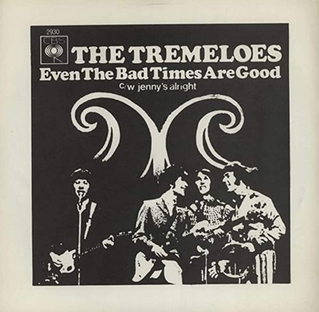
"Even the Bad Times Are Good" is a song written by British group the Tremeloes, released as a single in July 1967. It became their third consecutive top-ten hit in the UK and continued their international success.
This is the discography of English beat group the Tremeloes, including with Brian Poole.

















